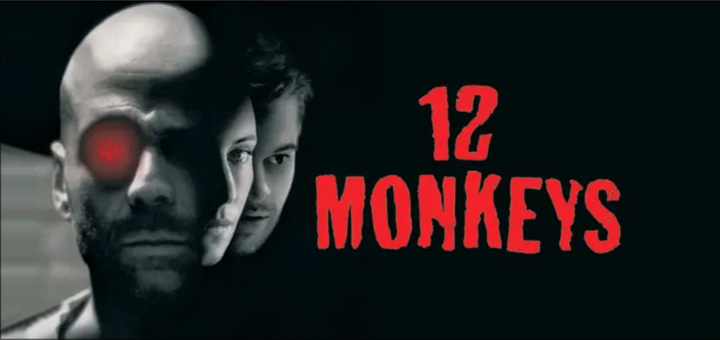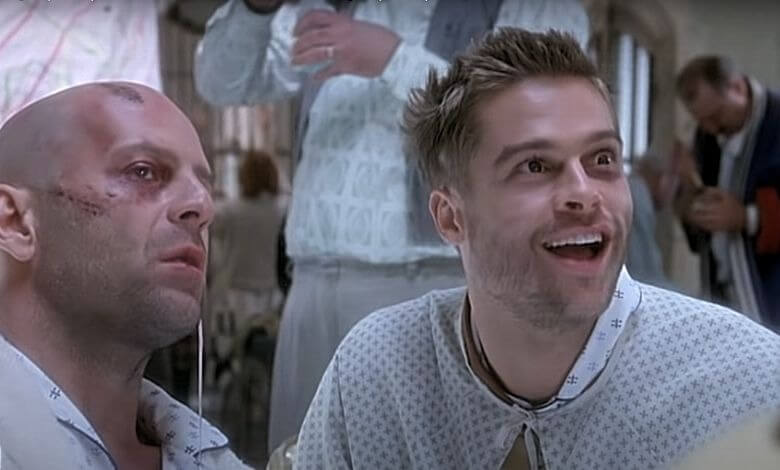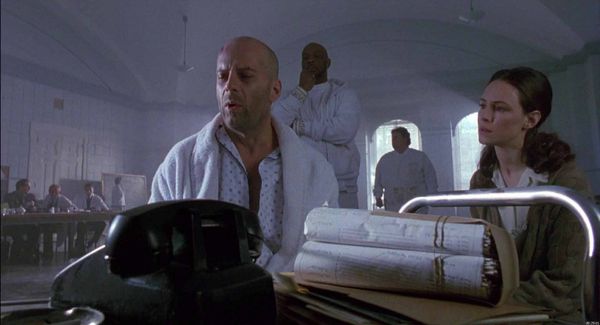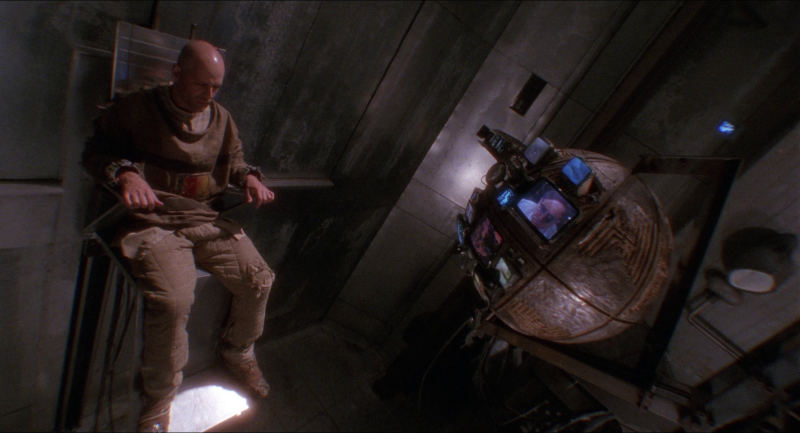12 Monkeys (1995)

12 Monkeys (1995), directed by Terry Gilliam and inspired by the French short film La Jetée (1962), is a mind-bending science fiction thriller that explores themes of time travel, fate, and human resilience in the face of catastrophe. Set against the backdrop of a dystopian future where a deadly virus has wiped out much of humanity, the film follows James Cole, played by Bruce Willis, as he is sent back in time to gather information about the origins of the pandemic. The film’s nonlinear narrative, striking visuals, and strong performances make it a standout in the sci-fi genre.
The story begins in the year 2035, when what remains of humanity lives underground after a lethal virus decimates most of the Earth’s population. The survivors are ruled by an authoritarian regime that uses prisoners for dangerous missions. James Cole is selected by this ruling council to travel back to the past and trace the origin of the virus, believed to have been released by a group known as the Army of the 12 Monkeys. If successful, Cole could earn a pardon. However, time travel is far from precise, and Cole is inadvertently sent to the wrong year, landing in 1990 instead of 1996.
Bruce Willis delivers a compelling performance as James Cole, portraying a character who oscillates between confusion, desperation, and grim determination. Unlike many sci-fi heroes, Cole is not an invincible warrior but a broken man haunted by nightmares of the past—and future. His disorientation and struggle to distinguish reality from delusion create a sense of empathy that grounds the film’s complex plot. Willis’s portrayal captures both the fragility and strength of a man burdened with an impossible mission.
In 1990, Cole is institutionalized for his seemingly delusional warnings about the future and the coming plague. Here, he encounters psychiatrist Dr. Kathryn Railly, played by Madeleine Stowe. Initially skeptical and dismissive of Cole’s wild claims, Railly becomes an important ally as events unfold, and she begins to question her own beliefs about fate and destiny. Stowe’s performance brings depth and humanity to the role, as she transforms from a detached observer into a courageous partner who risks everything to uncover the truth.
The standout performance, however, comes from Brad Pitt, who plays Jeffrey Goines, a fellow patient in the mental institution and the unpredictable, eccentric leader of an underground movement. Pitt’s portrayal of Goines is manic, unsettling, and wildly charismatic, earning him widespread acclaim and an Academy Award nomination for Best Supporting Actor. Goines’s erratic behavior and radical ideas make him a key figure in the mystery surrounding the Army of the 12 Monkeys, but his true role in the plot remains unclear until the very end.
Director Terry Gilliam’s signature style permeates the film, blending surreal visuals, dark humor, and a dystopian aesthetic. The use of skewed camera angles, gritty set design, and jarring imagery creates an atmosphere of paranoia and unease, reflecting Cole’s own fractured state of mind. The film’s production design and cinematography evoke a sense of claustrophobic tension, whether in the decaying future world or the unsettlingly familiar past.
As Cole jumps between timelines, 12 Monkeys raises philosophical questions about free will, destiny, and the nature of time. Can the future be changed, or are all events predetermined? Is Cole genuinely altering history, or is he merely a pawn in an unchangeable cycle? The film blurs the line between sanity and madness, as Cole’s grip on reality becomes increasingly tenuous. These existential dilemmas are integral to the narrative and leave viewers questioning their own perceptions of reality.
The film’s central mystery builds towards a gripping climax, revealing the true origins of the virus and the role of the Army of the 12 Monkeys. Unlike many time travel stories that seek to resolve paradoxes neatly, 12 Monkeys embraces ambiguity and complexity, leaving lingering questions and encouraging multiple interpretations. Its bleak, thought-provoking ending underscores the cyclical nature of time and fate, adding to the film’s lasting impact.
Ultimately, 12 Monkeys is more than just a sci-fi thriller. It is a meditation on human resilience, the fragility of reality, and the consequences of trying to change the past. Terry Gilliam’s direction, combined with standout performances from Bruce Willis, Madeleine Stowe, and Brad Pitt, elevates the film into a cinematic experience that remains as engaging and provocative today as when it was released. With its blend of psychological depth, dystopian themes, and innovative storytelling, 12 Monkeys continues to captivate audiences and provoke thoughtful discussion.











